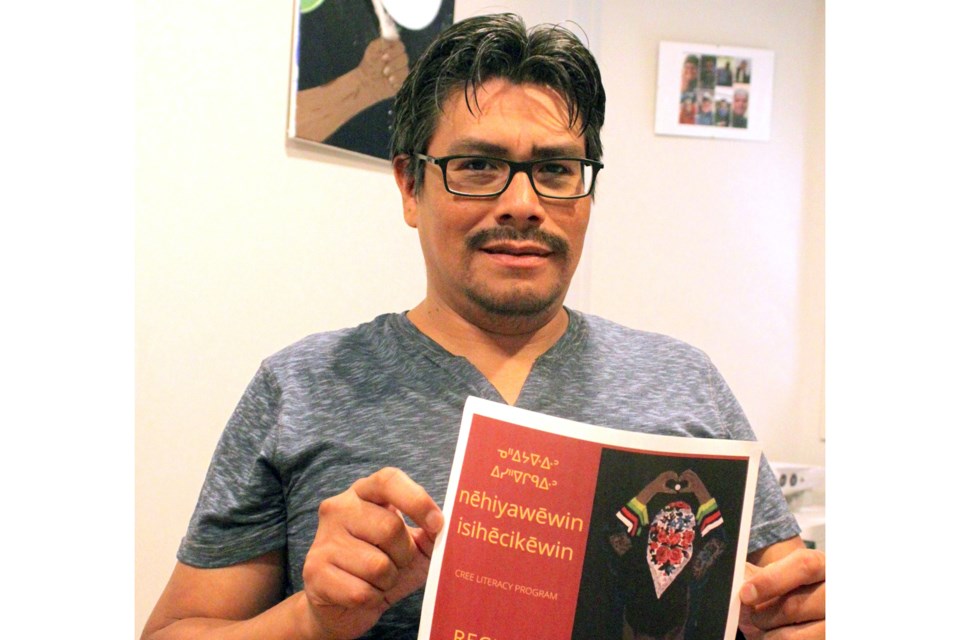LAC LA BICHE - A Lac La Biche man is keeping his Indigenous heritage alive by teaching the Cree language to others.
Vernon Auger, who is originally from John D’Or Prairie near High Level, grew up in a community where Cree continues to be spoken regularly, and where many residents are fluent in their traditional language.
“My mother was a Cree teacher at our local school in John D’Or Prairie for about 15 years and this year she passed away. We miss her dearly. have decided to dedicate myself to follow in her footsteps,” Auger told Lakeland This Week. “When she retired in 2009, I moved to Lac La Biche to take the Native Arts program at Portage College. After that, I returned to my home community to teach Cree before coming back to Lac La Biche.”
Since returning to the community, Auger has established himself as an instructor of the language, teaching the Cree Literacy Program at the Lac La Biche Native Friendship Centre and providing classes for a few hours a week at the Light of Christ Catholic School.
He explained that his regular students – who he teaches online in two 12-week segments throughout the year – come from all walks of life, with some being lifelong learners who wish to expand to their linguistic abilities while others are Indigenous people eager to reclaim their language and culture.
Teaching
Unlike the English alphabet, Cree contains 14 letters, and doesn't have the sounds of the letters f, d, and b. Like many global tongues, Cree includes a variety of dialects, each of which are specific to certain regions of western Canada, but also parts of Ontario and Quebec.
Students are taught how to introduce themselves, but also how to practice sounds and syllables, which are necessary to have when practicing actual words, Auger explained.
“In higher levels, words are put into sentences which students rehearse before engaging in conversations.”
Similar to other Indigenous languages, Cree is largely oral in nature, with learners mostly hearing and reading.
“Students are not required to write the language, but gradually, they do learn how to read and understand it,” he said.
Auger says the Cree language, unlike other Indigenous Canadian languages, wasn’t lost ... people merely didn’t use it.
“For generations, when children attended school, they were only taught English, which for a long time affected the language,” he said. “Even though both of my parents went to residential schools, their parents and elders kept the language going at home, which was then passed onto me.”
According to Auger, in recent times, many Cree youth and young adults have embraced their traditional language by studying it intensely. He added that programs such as the one he teaches are not only about preserving the language, but maintaining the culture and history as well.
“People want to be able to identify who they are and where they belong,” he said. “But most importantly, teaching the Cree language allows others to pass it onto their children and passing it onto future generations.”



